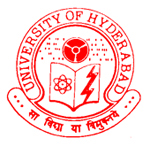Prof. Dr. Andreas HenselUniversity of Münster Institute of Pharmaceutical Biology and Phytochemistry Corrensstr. 48 48149 Münster Germany |
 |
|
| Email: Net: |
ahensel@uni-muenster.de www.uni-muenster.de/Chemie.pb/ |
|
The research group of Prof. Dr. Andreas Hensel, located within the Faculty of Chemistry and Pharmacy (School of Pharmacy) is working on functional aspects of natural products, especially of polyphenols and plant-derived polysaccharides. Special focus is made on glycosylated natural products from medicinal plants.
The overall aim of the work is to identify innovative physiological and pharmacological effects of oligo- and polysaccharides. These effects are to be characterized on physiological, biochemical and molecular level to get exact information on the respective mode of actions. Distinct structure-relationships are to be evaluated in order to identify the active substructures of complex glycans.
Functionality of the glycans isolated and characterized is based mainly on
1. skin-cell activity (differentiation, proliferation, signal cascades of keratinocytes)
2. antiadhesive properties against pathogenic bacteria and virus (Helicobacter pylori, Herpes simplex virus 1, Porphyromonas gingivalis).
Recent investigations have shown strong activities of certain polysaccharides on differentiation and proliferation of keratinocytes and fibroblasts. The respective receptor-mediated mechanisms and signal transduction cascades have to be evaluated. Wound-healing systems can be deduced from these findings, but also skin regenerating aspects for dermatology and cosmetics are under investigation.
Acidic glycans were shown to interact specifically with outer membrane proteins from H. pylori, leading to an inhibition of adhesion to host cells. This finding can be a key mechanism for development of a new class of anti-infective drugs, the so called adhesion blockers.
Most of the running projects on glycoscience are related to the identification, structural characterization and functional identification of these antiadhesive compounds. Especially glycans with strong antiadhesive activity against H. pylori and uropathogenic E. coli have recently been identified. The adhesion blockers against H. plyori were found to inhibit more or less specifically the outer membrane proteins BabA and SabA of the bacteria, but do not influence the eucaryotic cells. Further studies within MCGS consortium will focus on mechanistic functionality how these glycans interact with BabA surface proteins and which structural features of the glycans are responsible for these effects.
Similar investigations are carried out for development of antiadhesive glycosylated compounds against FimH-mediated adhesion of uropathonic E. coli.
Beside the effective isolation and fractionation of polysaccharides and glycoproteins from plant material or plant cell cultures the structure elucidation by monomer analysis (TLC, GLC, GLC-MS, IEC-HPLC), linkage analysis (methylation procedure), enzymatic or acid-catalyzed degradation to distinct oligomers, NMR, advanced MS studies etc. will give a good insight into the molecular structures of the polymers.
The working group consists of about 10 PhD students, being mostly pharmacists, biotechnologists and food chemists. The group is strongly interdisciplinary orientated and strong and efficient cooperations with industrial partners from all over the world create a climate of innovation, internationality and intellectual personalities.



